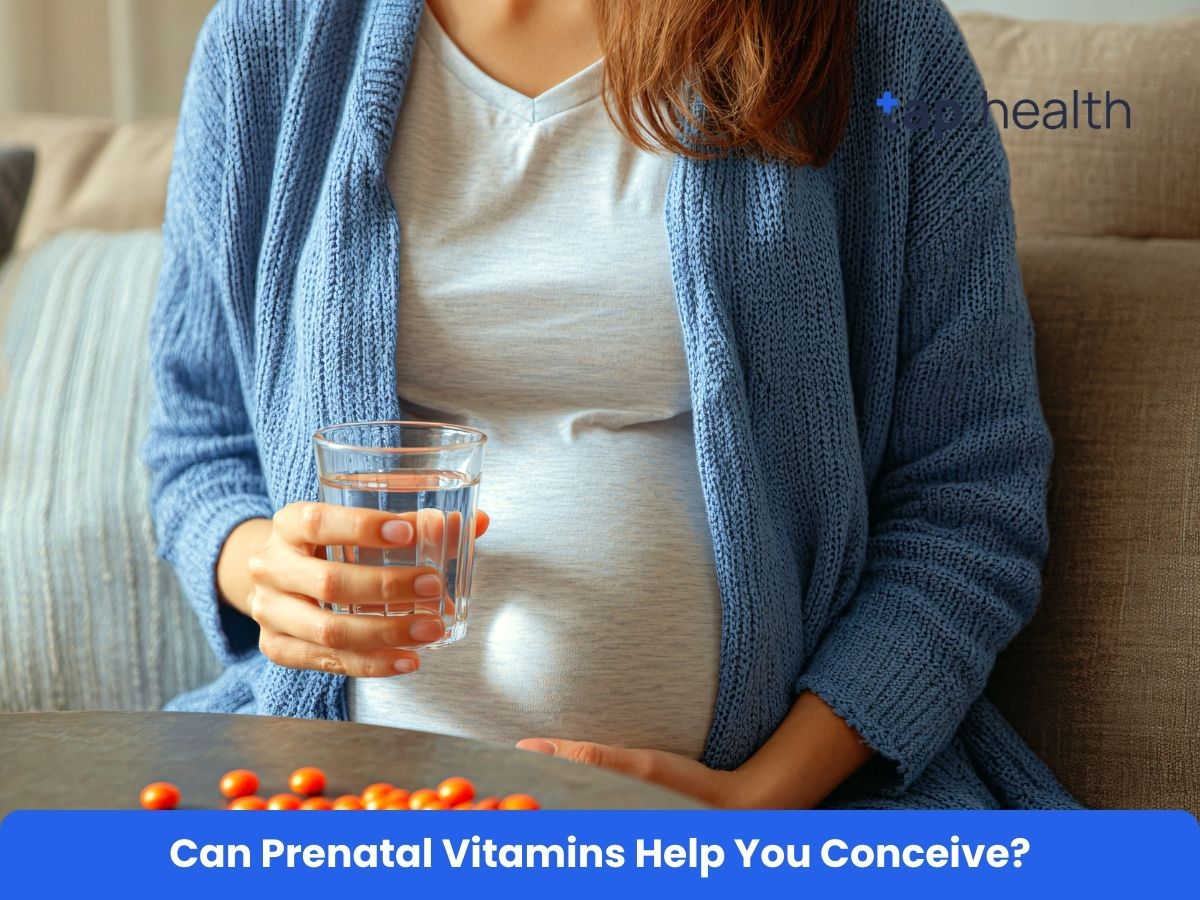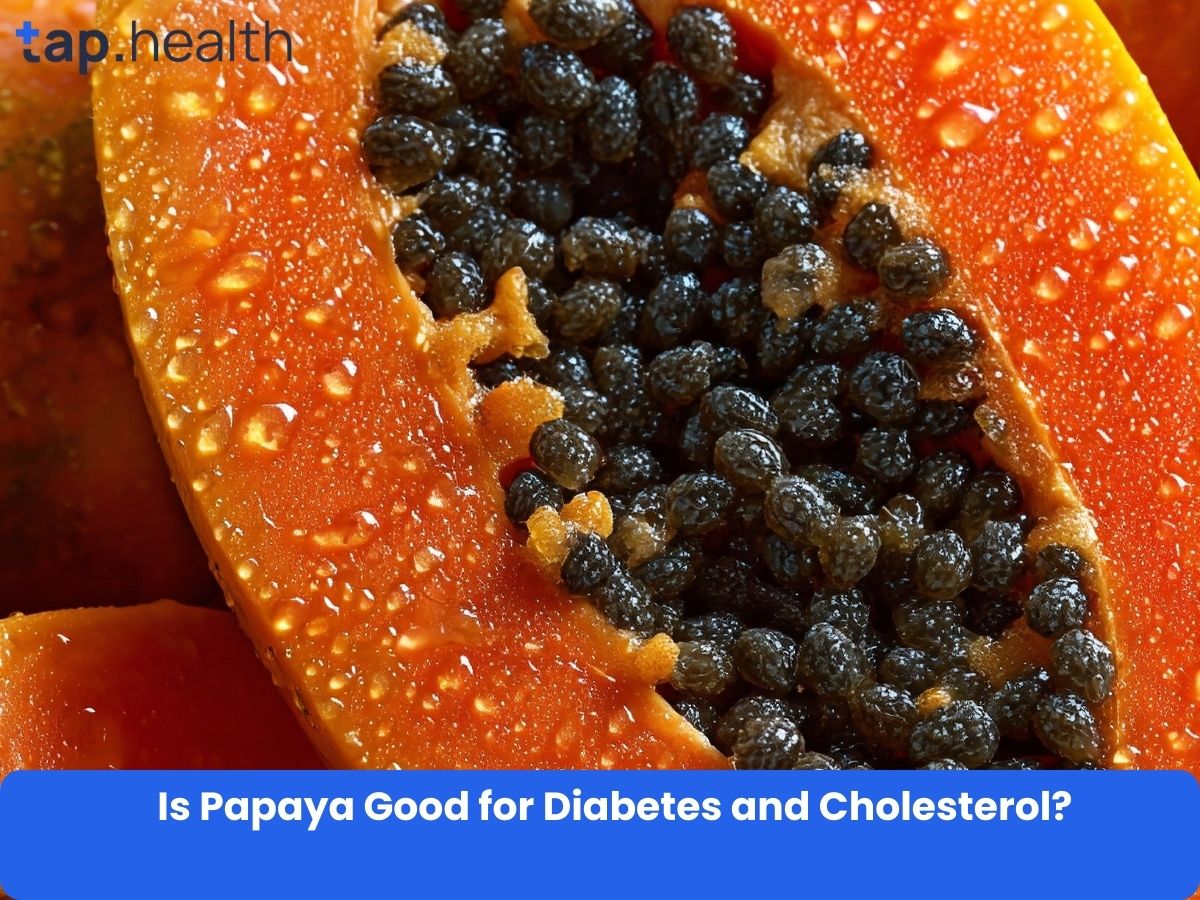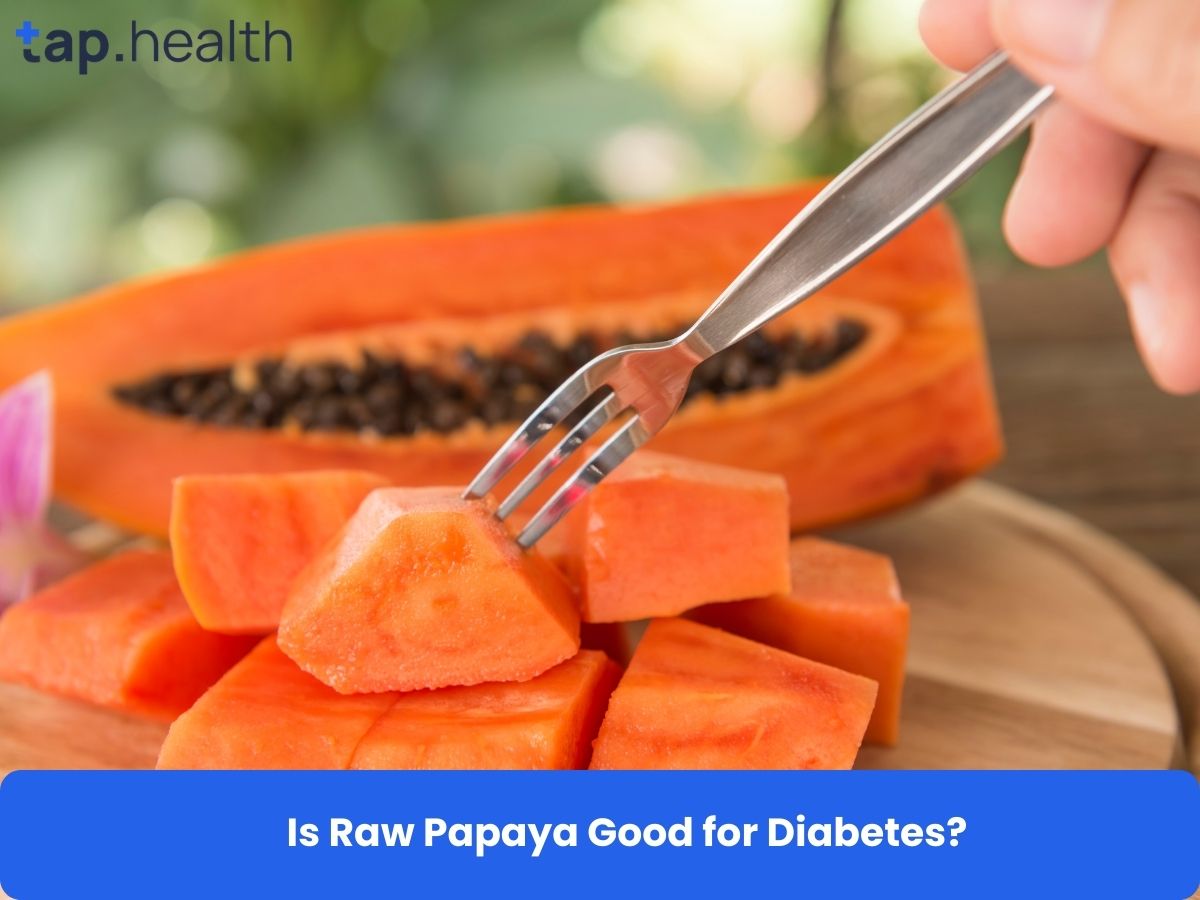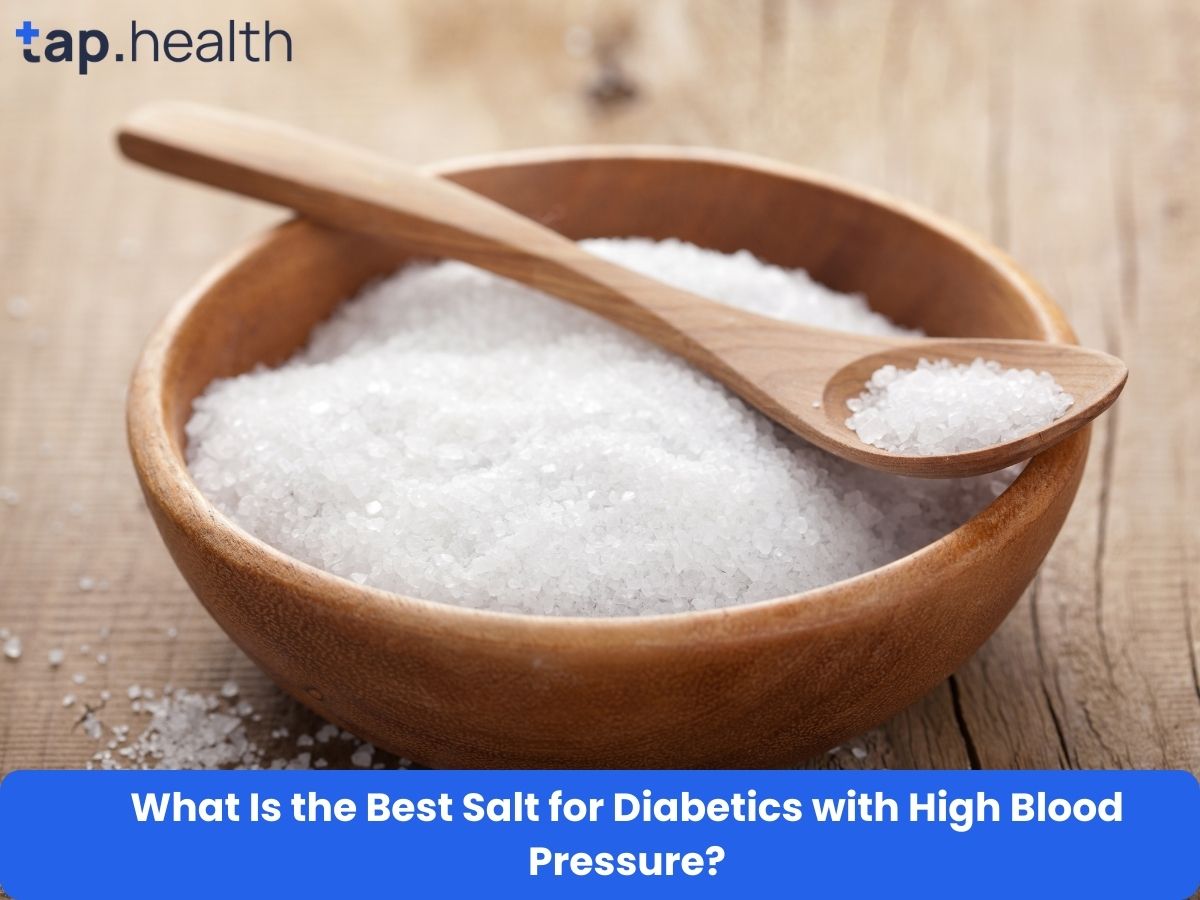If you’re trying to have a baby, you’ve probably heard this advice:
“Start taking prenatal vitamins now.”
But you might be asking: Can prenatal vitamins help you conceive? Do they actually make it easier to get pregnant?
Here’s the truth:
Prenatal vitamins don’t directly cause pregnancy. They won’t speed up ovulation or guarantee you’ll get pregnant next month.
But—they play a powerful behind-the-scenes role in preparing your body for a healthy pregnancy, which can improve your chances of conceiving and carrying a baby successfully.
In this guide, we’ll break down everything in simple, easy-to-understand language—no confusing medical jargon. We’ve researched trusted sources like the American College of Obstetricians and Gynecologists (ACOG), Mayo Clinic, CDC, Harvard Health, and National Institutes of Health (NIH) to give you accurate, reliable answers.
We’ll cover:
- What prenatal vitamins are
- How they affect fertility
- When to start taking them
- What key nutrients do
- Whether men should take them
- And all the common questions people ask
Let’s get started.
What Are Prenatal Vitamins?
Prenatal vitamins are special multivitamins made for women who are:
- Trying to get pregnant
- Already pregnant
- Breastfeeding
They’re packed with extra nutrients that support fertility, egg health, and early fetal development—especially in the first few weeks of pregnancy, often before you even know you’re pregnant.
Unlike regular multivitamins, prenatals contain higher levels of:
- Folic acid (vitamin B9)
- Iron
- Calcium
- Vitamin D
- Omega-3 fatty acids (DHA) in some formulas
These nutrients are essential for a healthy reproductive system and a strong start for a growing baby.
And here’s the important part: you don’t need to be pregnant to take them. In fact, doctors strongly recommend starting prenatal vitamins before you conceive.
Can Prenatal Vitamins Help You Get Pregnant?
Not directly—but yes, indirectly.
Let’s be clear:
Prenatal vitamins are not fertility pills. They won’t make your body ovulate faster or increase your chances of conception like fertility treatments do.
But—they help create the best possible environment in your body for conception and a healthy early pregnancy.
Think of it like planting a seed:
- The seed is the egg and sperm
- The soil is your body
- Prenatal vitamins help make the soil rich, healthy, and ready
If your body is low in key nutrients, it may be harder to get pregnant or stay pregnant. Prenatal vitamins fill those gaps.
So while they don’t cause pregnancy, they support your fertility and give your body the tools it needs to succeed.
How Do Prenatal Vitamins Support Fertility?
Even though they don’t “boost” fertility like a drug, prenatal vitamins help in several science-backed ways.
1. Folic Acid Helps with Egg Quality and Ovulation
Folic acid (vitamin B9) is the star nutrient in prenatal vitamins.
Why? Because it:
- Supports healthy egg development
- Helps regulate ovulation
- Reduces the risk of ovulatory infertility (when you don’t release an egg)
A study published in the American Journal of Obstetrics & Gynecology found that women who took folic acid supplements had a lower risk of ovulation problems.
And here’s the kicker: folic acid is most important in the first 4 weeks of pregnancy—often before you know you’re pregnant. That’s why starting early is key.
2. Iron Helps Prevent Anemia, Which Can Affect Fertility
Low iron can lead to anemia, which may disrupt your menstrual cycle and ovulation.
Research shows that women with iron deficiency are more likely to have:
- Irregular periods
- Missed ovulation
- Trouble getting pregnant
Prenatal vitamins usually contain 27 mg of iron, which helps keep your blood healthy and your cycle on track.
But—don’t take extra iron unless your doctor says you need it. Too much can cause constipation or other issues.
3. Vitamin D Supports Hormone Balance
Low vitamin D is linked to:
- Irregular cycles
- PCOS (Polycystic Ovary Syndrome)
- Lower chances of getting pregnant
Prenatal vitamins typically include 600–800 IU of vitamin D, which helps regulate hormones like estrogen and progesterone—both critical for ovulation and implantation.
4. B Vitamins Help with Energy and Hormone Regulation
B vitamins (like B6 and B12) play a role in:
- Hormone production
- Red blood cell formation
- Energy levels
Low B12 has been linked to infertility and higher risk of early miscarriage.
Prenatals include these to keep your body’s systems running smoothly during the fertility phase.
When Should You Start Taking Prenatal Vitamins?
The best time to start is at least 3 months before you try to conceive.
Why?
Because:
- It takes time for nutrients like folic acid to build up in your body
- The first few weeks of pregnancy are critical for baby’s brain and spine development
- Many women don’t know they’re pregnant until 4–6 weeks in
The CDC and ACOG both recommend taking 400–800 mcg of folic acid daily starting before conception to prevent serious birth defects like spina bifida.
So if you’re planning to get pregnant, start your prenatal vitamin now—even if you’re not actively trying yet.
Can Prenatal Vitamins Help You Conceive Faster?
There’s no solid proof that prenatal vitamins make you get pregnant faster.
But—they can improve your odds by:
- Supporting regular ovulation
- Improving egg quality
- Reducing the risk of early miscarriage
- Keeping your body healthy and ready
Think of them like a daily tune-up for your reproductive system.
They won’t speed up the engine, but they make sure everything’s working smoothly.
Do Prenatal Vitamins Increase Fertility?
Not in the way most people think.
They don’t increase fertility like fertility drugs (like Clomid or IVF). But they support overall reproductive health, which is part of being fertile.
If you’re deficient in key nutrients, your body may struggle to ovulate or sustain a pregnancy. Prenatals help fix that.
So while they’re not a “fertility booster,” they’re a fertility supporter—and that’s just as important.
What If I’m Not Pregnant Yet? Is It Safe to Take Prenatals?
Yes, it’s completely safe.
Prenatal vitamins are designed for women who are trying to get pregnant, not just those who are already pregnant.
Taking them before conception is actually the whole point.
Your body needs time to build up nutrients like folic acid. Starting after you miss your period is often too late for maximum protection.
So go ahead—take your prenatal even if you’re just thinking about getting pregnant.
Can Men Take Prenatal Vitamins When Trying to Conceive?
Not usually—but men need their own fertility support.
Prenatal vitamins are made for women. They have high levels of iron and folic acid—more than men need.
But men play a big role in conception. Healthy sperm = better chances of pregnancy.
So instead of taking prenatal vitamins, men should consider:
- Men’s multivitamins with zinc, selenium, and vitamin C
- Or fertility supplements for men that support:
- Sperm count
- Sperm motility (movement)
- Sperm shape (morphology)
Key nutrients for men:
- Zinc – supports testosterone and sperm production
- Selenium – protects sperm from damage
- Vitamin C – improves sperm quality
- Folic acid – yes, men need it too! Low folic acid is linked to abnormal sperm
Some couples choose a “preconception plan” where both partners take targeted supplements.
What Are the Best Prenatal Vitamins for Trying to Conceive?
Not all prenatal vitamins are the same. Here’s what to look for:
1. Folic Acid (or Folate)
- Look for at least 400–800 mcg
- Some use methylfolate (the active form), which is better for people with MTHFR gene changes
2. Iron
- 27 mg is standard in most prenatals
- Helps prevent anemia and supports blood volume growth
3. Calcium
- 200–300 mg per dose
- Important for bone health and muscle function
4. Vitamin D
- 600–800 IU (or 15–20 mcg)
- Supports immune function and hormone balance
5. DHA (Omega-3)
- 200–300 mg of DHA
- Supports baby’s brain and eye development
- Found in algae or fish oil
6. No Unnecessary Additives
Avoid prenatals with:
- Artificial colors
- Preservatives
- High sugar (in gummies)
Top Picks (Based on Doctor Recommendations):
- Nature Made Prenatal Multi + DHA
- Garden of Life mykind Organics Prenatal
- SmartyPants Prenatal
- Ritual Essential Prenatal
- Vitafusion Prenatal Gummies (if you hate pills)
Always check with your doctor before starting any supplement.
Can Prenatal Vitamins Cause Side Effects?
Most women tolerate prenatal vitamins well, but some experience side effects.
Common Side Effects:
- Nausea – especially on an empty stomach
- Constipation – mainly from iron
- Dark stools – normal, caused by iron
- Upset stomach
- Fishy aftertaste – if it contains DHA from fish oil
How to Reduce Side Effects:
- Take with food
- Drink plenty of water
- Add fiber to your diet
- Split the dose (take half in morning, half at night)
- Switch to a gentler formula (like gummies or liquid)
If side effects are severe, talk to your doctor. There are low-iron or iron-free options if needed.
Can You Get Pregnant Without Taking Prenatal Vitamins?
Yes, absolutely.
Thousands of women get pregnant without ever taking a prenatal vitamin.
But—you miss out on key protection for you and your baby.
Think of it like wearing a seatbelt:
- You can drive without one
- But if there’s an accident, you’re at much higher risk of injury
Prenatal vitamins are like a seatbelt for your pregnancy. They don’t prevent the “crash,” but they protect you when it matters most.
Do Prenatal Vitamins Help Prevent Miscarriage?
They can’t prevent all miscarriages—many are caused by chromosomal issues that can’t be controlled.
But prenatal vitamins may reduce the risk of certain types of early pregnancy loss, especially:
- Miscarriages linked to nutrient deficiencies
- Those caused by neural tube defects
Folic acid, in particular, has been shown to lower the risk of early miscarriage in women with ovulation issues.
Also, a healthy body is better at sustaining a pregnancy. Prenatals support that foundation.
Can Prenatal Vitamins Help With PCOS or Irregular Cycles?
They won’t cure PCOS (Polycystic Ovary Syndrome), but they can help manage some symptoms.
Women with PCOS often have:
- Insulin resistance
- Hormone imbalances
- Irregular ovulation
Prenatal vitamins won’t fix these, but they support overall health. Some doctors also recommend:
- Inositol – helps with insulin and ovulation
- Vitamin D – often low in women with PCOS
- B vitamins – support metabolism
Prenatals usually include vitamin D and B vitamins, so they’re a good base—but may need to be paired with other supplements for PCOS.
What If I Get Pregnant Without Taking Prenatals?
Don’t panic.
If you find out you’re pregnant and haven’t been taking a prenatal, start today.
Even if you’re 4–6 weeks along, it’s not too late. The baby’s spine and brain are still forming, and folic acid can still help.
Call your doctor and let them know. They may recommend a higher dose of folic acid for a short time.
The key is to start now and stay consistent.
Can Gummy Prenatal Vitamins Be as Good as Pills?
Some are, but not all gummy prenatals are created equal.
Pros of Gummies:
- Easier to swallow
- Taste good
- No nausea for some people
Cons:
- Often lack iron (or have none)
- May not have enough folic acid
- Contain sugar or corn syrup
- May not include calcium or DHA
If you choose gummies, check the label:
- Make sure it has at least 400 mcg folic acid
- Look for added DHA if possible
- Avoid high sugar content
And consider taking an iron supplement separately if your gummy doesn’t have it.
Do You Need to Take Prenatal Vitamins Forever?
No.
Most women take prenatal vitamins:
- Starting 3 months before trying to conceive
- Throughout pregnancy
- During breastfeeding
Once you stop breastfeeding, you can switch back to a regular multivitamin or stop supplements altogether (if your diet is healthy).
Always talk to your doctor about when to stop.
Can Prenatal Vitamins Help With Hair and Nail Growth?
Many women say their hair gets thicker and nails stronger while taking prenatals.
But here’s the truth:
This is usually because the vitamins are fixing a nutrient deficiency.
If you were low in biotin, folic acid, or iron, your body is now getting what it needs—so your hair and nails improve.
But if you’re already well-nourished, prenatals won’t give you super hair. And once you stop, your hair may shed more (this is normal postpartum shedding, not a vitamin issue).
So yes, they can help—but not as a beauty hack.
What If I’m Vegan or Vegetarian?
No problem.
There are vegan-friendly prenatal vitamins that use:
- Plant-based DHA (from algae)
- No animal gelatin (in capsules)
- No animal-derived vitamin D
Look for labels that say “vegan” or “plant-based.”
Popular vegan prenatals:
- Garden of Life Vitamin Code RAW Prenatal
- Deva Vegan Prenatal
- Ritual Essential Prenatal (algae-based DHA)
Make sure they still have enough folic acid, iron, and B12—vegans are often low in B12.
Can You Take Too Many Prenatal Vitamins?
Yes. More is not better.
Taking double the dose or mixing prenatals with other supplements can lead to:
- Toxic levels of vitamins (especially vitamin A)
- Iron overload
- Nausea, liver issues, or nerve damage
Stick to one prenatal per day, unless your doctor tells you otherwise.
And avoid taking extra supplements unless prescribed.
Do Prenatal Vitamins Help with Implantation?
There’s no direct evidence that prenatal vitamins help the embryo implant in the uterus.
But—they support a healthy uterine environment, which may help.
For example:
- Folic acid supports cell division
- Vitamin D helps with immune balance in the uterus
- Iron ensures good blood flow
So while they don’t “make” implantation happen, they help your body be ready for it.
Can Prenatal Vitamins Help After a Miscarriage?
Yes.
After a miscarriage, your body needs time to heal. Doctors often recommend:
- Continuing prenatal vitamins
- Staying on folic acid
- Waiting 1–3 months before trying again
Prenatals help your body recover and prepare for the next pregnancy.
And emotionally, taking a prenatal can feel like a positive step forward.
Always follow your doctor’s advice.
What’s the Difference Between Prenatal and Regular Multivitamins?
| Folic Acid | 400–800 mcg | 100–400 mcg |
| Iron | 27 mg | 0–18 mg |
| Calcium | 200–300 mg | 100–200 mg |
| DHA | Often included | Rarely included |
| Vitamin D | 600–800 IU | 400–600 IU |
Prenatals are tailored for pregnancy needs, with higher levels of key nutrients.
Regular multis aren’t bad—but they don’t offer the same level of protection for early pregnancy.
Final Answer: Can Prenatal Vitamins Help You Conceive?
Not directly. They won’t make you ovulate or get pregnant faster.
But yes, they help in important ways:
- They support egg health and ovulation
- They reduce the risk of birth defects
- They prepare your body for a healthy pregnancy
- They may lower the risk of early miscarriage
So while they’re not a magic fertility pill, they’re a critical part of getting ready for pregnancy.
If you’re trying to conceive, start taking a prenatal vitamin now—at least 3 months before you begin trying.
Your future baby will thank you.
Real-Life Scenario: Anjali and Rohan’s Journey
This scenario illustrates a common situation seen in fertility clinics.
The Couple: Anjali (29) and Rohan (31) from Bangalore. The Problem: They had been trying to conceive for 8 months with no success. Anjali had regular periods but felt constantly exhausted. Rohan was a strict vegetarian.
The Discovery: A simple blood test showed Anjali was severely anaemic (Ferritin levels were low) and Rohan had low B12 and Vitamin D levels.
The Change:
- Their doctor put Anjali on a prenatal with extra Iron.
- Rohan started a multivitamin with Zinc and B12.
- They stopped drinking coffee with lunch.
The Result: Anjali’s energy returned within 4 weeks. By the fourth month of this regimen, they conceived naturally. The vitamins didn’t “cure” infertility, but they fixed the deficiencies that were blocking it.
Expert Contribution
We consulted general medical consensus from fertility specialists regarding this topic.
Dr. R. Gupta, Senior Gynaecologist: “Patients often ask for ‘strong medicines’ to get pregnant. I tell them to start with the basics. A simple Folic Acid and Vitamin D supplement can improve egg quality significantly over 90 days. You cannot build a house on a shaky foundation. Fix your nutrition first.”
Medical Fact Check: According to the National Institutes of Health (NIH), adequate folate intake is associated with higher progesterone levels and a lower risk of irregular ovulation.
Home Remedies & Lifestyle Changes to Boost Absorption
Taking a pill isn’t enough; you have to absorb it! Here are simple Indian home hacks to make your vitamins work harder.
- The Lemon Water Trick: Never take your Iron or Prenatal vitamin with milk or tea. Calcium blocks Iron. Instead, take it with a glass of nimbu pani (lemon water). Vitamin C acts like a magnet, pulling Iron into your blood.
- Cook in Iron Kadhais: Switch from non-stick to traditional cast-iron cookware for your dal and sabzi. This naturally adds iron to your food.
- Soak Your Nuts: Almonds and walnuts are great for fertility (Omega-3s), but soak them overnight. This removes the peel’s enzymes that make digestion hard.
- Sun-Bathing: Spend 15 minutes in the morning sun (before 10 AM) to naturally boost Vitamin D levels.
Recommendations Grounded in Proven Research and Facts
Based on medical data, here is your action plan:
- Start Early: Do not wait. If you are thinking about a baby, start a prenatal vitamin with 400mcg of Folic Acid today.
- Check the Label: Ensure your vitamin contains Iron, Vitamin D, Iodine, and Zinc.
- Don’t Forget Him: Men contribute 50% of the DNA. Men should take a multivitamin with Zinc and Selenium to boost sperm health.
- Consult a Doctor: If you have been trying for more than 12 months (or 6 months if you are over 35), vitamins alone may not be enough. You need to see a specialist.
Frequently Asked Questions (FAQ) on Can Prenatal Vitamins Help You Conceive?
Can prenatal vitamins make you more fertile?
Not directly. But they support fertility by improving egg health, hormone balance, and nutrient levels.
How soon after stopping birth control should I start prenatal vitamins?
Start as soon as you decide to try for a baby—even before you stop birth control. It takes time for your cycle to regulate.
Can I get pregnant while taking prenatal vitamins?
Yes. Prenatals don’t prevent pregnancy. They’re meant to be taken while trying to conceive.
Do prenatal vitamins increase hCG levels?
No. Prenatal vitamins do not affect hCG (pregnancy hormone) levels. They won’t cause a false positive on a pregnancy test.
Can I take prenatal vitamins if I’m not trying to get pregnant?
Yes, but only if you’re planning to conceive soon. If not, a regular multivitamin is better to avoid excess iron and nutrients.
Should I take prenatal vitamins if I’m having trouble getting pregnant?
Yes. Even if you’re seeing a fertility specialist, prenatals support overall health. Just let your doctor know what you’re taking.
Can prenatal vitamins cause bloating?
Some women feel bloated, especially from iron. Drinking water, eating fiber, and taking the vitamin with food can help.
Do I need a prescription for prenatal vitamins?
No. Most are available over the counter. But your doctor may prescribe a stronger version if needed.
Can I take prenatal vitamins with other supplements?
Only if your doctor says it’s safe. Mixing supplements can lead to too much of certain nutrients.
What if I forget to take my prenatal vitamin?
Just take it when you remember. If it’s the next day, skip the missed dose and continue your regular schedule. Don’t double up.
Can prenatal vitamins help with implantation?
Not directly. But they help create a healthy uterine environment, which may support successful implantation.
Do prenatal vitamins work if you’re over 35?
Yes. In fact, women over 35 are often encouraged to take them early, as egg quality declines with age.
Can men take prenatal vitamins to help conceive?
Not recommended. They’re too high in iron and certain vitamins for men. Instead, men should take fertility supplements designed for them.
Are expensive prenatal vitamins better?
Not necessarily. Look for key nutrients and third-party testing (like USP or NSF), not just price.
Can prenatal vitamins help with morning sickness?
Some do. Prenatals with B6 can help reduce nausea. Take with food or at night to avoid upset stomach.
Conclusion: Yes, Start Prenatal Vitamins—Even Before You’re Pregnant
So, can prenatal vitamins help you conceive?
They won’t make it happen overnight. But they do help your body get ready—and that’s half the battle.
By supporting egg health, hormone balance, and early fetal development, prenatal vitamins give you the best chance at a healthy pregnancy.
The best time to start? Now.
Don’t wait until you see a positive test. Start at least 3 months before trying to conceive. Choose a quality prenatal with folic acid, iron, DHA, and vitamin D. Take it daily. Eat well. Stay healthy.
And when that little line appears? You’ll know you gave your body the best possible start.
Here are the authoritative references used to create the article, with clickable links to the original medical data.
References:
- Mayo Clinic (Pregnancy Nutrition & Essentials)
- Source: Pregnancy diet: Focus on these essential nutrients
- Relevance: Provides the foundational data on the “Big 5” nutrients (Folic Acid, Iron, Vitamin D, etc.) and their specific roles in fetal development.
- National Institutes of Health (NIH) – PubMed Central
- Source: Diet and Fertility: A Review (The Nurses’ Health Study II)
- Relevance: This is the landmark study linking multivitamin use (specifically Folic Acid) to a lower risk of ovulatory infertility.
- Cleveland Clinic
- Source: Prenatal Vitamins: Importance, Deficiency & Essentials
- Relevance: Offers the medical consensus on when to start taking vitamins (the 3-month rule) and the risks of deficiency.
- National Institute of Nutrition (NIN) – ICMR
- Source: Dietary Guidelines for Indians (2024 Edition)
- Relevance: The primary Indian authority used to tailor the advice regarding vegetarian diets, iron deficiency (anaemia) prevalence in India, and local dietary habits.



